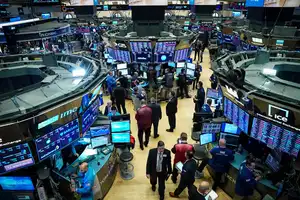Stock trading indeed presents a challenge in deciding which stocks to trade, as there are numerous options with varying degrees of volatility and performance potential. Even with the help of software or analysis tools, selecting the right stocks can be time-consuming and uncertain. Additionally, newer traders may struggle with this task, and even experienced traders need to put in considerable effort to analyze and choose stocks that align with their strategies.
Stock traders may diversify their attention among multiple stocks, which can further complicate their trading activities and divide their focus. This can be a significant challenge, especially when each stock requires careful monitoring and decision-making.
On the other hand, trading index futures simplifies the process considerably. Instead of analyzing and selecting individual stocks, traders can trade entire market indices, such as the S&P 500, in a single trade. This not only saves time but also reduces the complexity of asset selection. By trading the index, traders gain exposure to the performance of multiple stocks at once, providing a more diversified approach.
This simplicity in index futures trading can be a significant advantage for both investors and traders. Traders can focus more on their trading strategies and technical analysis, rather than spending excessive time on stock selection. For traders, eliminating the need for asset selection streamlines the trading process and allows for a more efficient use of their skills and resources.
Ultimately, trading is a skill-driven activity, and any advantage that simplifies the process or reduces unnecessary complexity can be beneficial. Index futures trading offers traders an opportunity to capitalize on broader market movements, mitigate some challenges associated with stock selection, and focus on their trading skills to achieve their goals.

Futures Trading Offers Much More Leverage than Stock Trading
Leverage can greatly enhance the profit potential for traders who have a solid advantage and are skilled at managing risk.
In the world of finance, higher levels of leverage are common in the realm of derivatives trading, which includes futures trading. Futures markets offer significantly higher leverage compared to traditional stock markets. This higher leverage allows traders to amplify their returns, effectively multiplying their trading advantage.
With traditional stock trading, the maximum leverage available is typically limited to 4:1, and there are additional restrictions, such as the requirement to maintain a minimum account balance for day trading on margin. While 4:1 leverage is an improvement over the previous 2:1 limit, it is still relatively low compared to what can be achieved in derivatives trading.
In contrast, futures trading allows for much higher leverage, such as 25:1 or more in some cases. This higher leverage opens up the potential for much larger returns on a given trading advantage. With higher leverage, the cost of borrowing becomes less significant relative to the increased returns. This means that traders can benefit from a much larger net return on their leveraged positions.
For example, a nominal return of 6% with a cost of borrowing at 5% would yield only a marginal profit at 2:1 leverage. However, at 25:1 leverage, the same 6% nominal return can translate into a substantial net return of 145% after accounting for borrowing costs.
Of course, it’s essential to remember that higher leverage also comes with increased risk. Managing risk properly becomes even more crucial with higher leverage, as losses can be magnified as well. Therefore, it’s important for traders to have a solid trading strategy, a good understanding of risk management, and the necessary skills to execute their trades effectively.
Ultimately, the decision between futures trading and stock trading depends on a trader’s risk tolerance, skill level, and preferred approach to the markets. Futures trading can offer significantly higher profit potential due to its higher leverage, making it an attractive option for traders who have the expertise and ability to manage risk effectively.
Risks of Futures Trading Versus Stock Trading
Futures trading offers traders a high degree of flexibility, allowing them to manage their risk exposure based on their trading strategies and financial means.
One key advantage of futures trading is the higher leverage it provides, which can significantly amplify potential profits for traders who have a strong advantage and are skilled at managing risk. However, this higher leverage also requires diligent risk management to avoid excessive losses.
Successful futures trading is not about taking on the highest possible leverage but rather about striking the right balance between leverage and risk. Traders can adjust their position sizes and leverage to suit their risk tolerance and to align with their trading strategies.
Additionally, the continuous nature of futures markets, with fewer gaps during trading hours, can be advantageous for traders concerned about price gaps that can occur in the stock market during overnight hours.
While stock trading remains popular, especially among shorter-term traders, futures trading is gaining traction as traders become more aware of its benefits and flexibility. Both futures trading and contracts for difference (CFD) trading offer compelling advantages over stock trading, including the ability to profit from smaller price movements and the potential to implement more precise risk management strategies.
Ultimately, the success of any trader, regardless of the market they choose, comes down to their trading skills, strategies, and risk management. Whether a trader opts for futures, stocks, or any other market, it is essential to have the necessary skills and expertise to trade profitably.
As more traders explore the opportunities presented by futures and CFD trading and develop their trading abilities, the appeal of these derivative markets is likely to continue to grow. The key to success in trading lies in dedication, education, and continuously improving one’s trading skills to adapt to changing market conditions.




